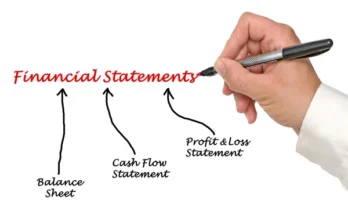A financial audit can be a nerve-wracking experience for small businesses, but proper preparation can make the process smoother and less stressful. Whether you are undergoing an internal audit to assess your financial health or an external audit by the IRS or another regulatory agency, being well-prepared is key. A financial audit evaluates your business’s financial records, transactions, and compliance with accounting standards and tax regulations. This guide will help you prepare for a financial audit in 2024, ensuring that you have the right documents, processes, and systems in place.
1. Understand the Purpose of the Audit
Before diving into the preparation process, it’s important to understand why your business is being audited. Audits can be conducted for several reasons:
- Compliance audits: These are often initiated by government agencies, such as the IRS or state tax authorities, to ensure that your business complies with tax laws and regulations.
- Internal audits: Internal audits are conducted by your business to assess financial performance, identify risks, and ensure that internal controls are functioning effectively.
- External audits: An external audit is typically carried out by a third-party accounting firm to verify the accuracy of your financial statements and provide assurance to stakeholders, such as investors or lenders.
- Special-purpose audits: These may be triggered by a specific event, such as applying for a loan, selling your business, or seeking investment, and require a detailed review of your finances.
Knowing the type and purpose of the audit will help you focus your preparation on the right areas.
2. Organize Your Financial Records
The foundation of any audit is the organization of your financial records. Auditors will need access to a wide range of documents, so having these readily available will streamline the process and reduce stress.
Key documents to gather for an audit:
- Financial statements: Ensure you have your income statement (profit and loss statement), balance sheet, and cash flow statement ready for review. These are the primary documents auditors will examine.
- Bank statements: Provide bank statements for all business accounts, including checking, savings, and credit accounts.
- Invoices and receipts: Collect all invoices issued to clients and receipts for expenses, including those for supplies, equipment, and services.
- Payroll records: Auditors will likely review your payroll to ensure you are complying with tax regulations and employee compensation laws. Have records of all employee wages, benefits, and tax withholdings.
- Tax returns: If the audit is tax-related, have your past tax returns, including federal, state, and local filings, ready for review.
- Loan agreements and contracts: Gather any loan agreements, leases, contracts with suppliers or clients, and other significant financial agreements.
- Inventory records: If you deal with physical goods, ensure your inventory records are up to date and reflect your actual stock levels.
Key tip: Use accounting software like QuickBooks, Xero, or FreshBooks to maintain and organize your financial records. These systems make it easier to track and retrieve documents during an audit.
3. Review Your Financial Statements
Auditors will closely examine your financial statements, so it’s essential to review them for accuracy and completeness before the audit begins. This includes checking for discrepancies, ensuring that all income and expenses are properly categorized, and verifying that your financial statements comply with Generally Accepted Accounting Principles (GAAP).
Steps to review your financial statements:
- Check for consistency: Ensure that the information in your income statement, balance sheet, and cash flow statement aligns. For example, the cash flow statement should accurately reflect changes in cash balances reported on the balance sheet.
- Reconcile accounts: Perform bank and account reconciliations to ensure that the balances in your financial records match your bank statements and other financial accounts.
- Double-check entries: Review any manual entries or adjustments to ensure they are accurate and supported by documentation. Errors in these entries can raise red flags during an audit.
- Verify calculations: Double-check calculations for assets, liabilities, equity, and expenses. Even small calculation errors can lead to larger issues during an audit.
Key tip: If you spot any errors or discrepancies during your review, address them before the audit begins. This will prevent delays and additional scrutiny during the audit process.
4. Ensure Compliance with Tax Regulations
One of the primary reasons businesses are audited is to check for tax compliance. In 2024, it’s important to stay up-to-date with changing tax laws and ensure your business complies with all relevant regulations.
How to ensure tax compliance:
- Review tax filings: Check your past tax returns to ensure they are accurate and reflect your actual income, deductions, and credits. Look for any discrepancies or missed deadlines that could raise issues during an audit.
- Confirm payroll tax compliance: Ensure that payroll taxes, including Social Security, Medicare, and federal unemployment taxes, have been correctly withheld and reported.
- Double-check deductions: Make sure all deductions you claimed are legitimate and backed by documentation. This includes deductions for business expenses, depreciation, and charitable contributions.
- Stay informed of tax law changes: Keep up with any changes to tax laws that could affect your business in 2024. Work with a tax professional to ensure that you are complying with the latest regulations.
Key tip: Consider working with an accountant or tax advisor to review your tax compliance before the audit. They can help you identify potential issues and ensure your tax filings are in order.
5. Review Internal Controls
Internal controls are the procedures and policies you have in place to ensure the accuracy and reliability of your financial reporting. Auditors will assess these controls to determine whether your business has effective systems for preventing fraud and ensuring compliance with regulations.
Key internal controls to review:
- Segregation of duties: Ensure that financial duties are properly separated among employees. For example, the person who handles cash transactions should not be responsible for recording those transactions in the accounting system.
- Authorization procedures: Implement procedures that require management approval for significant financial transactions, such as large purchases or new contracts.
- Access controls: Limit access to financial records and systems to authorized personnel only. This helps prevent unauthorized changes to your financial data.
- Documentation of processes: Clearly document your internal processes for handling financial transactions, such as invoicing, payroll, and expense reimbursement. Auditors may request to see these documents as part of their review.
Key tip: Strengthen any weak internal controls before the audit begins. Auditors will be looking for gaps that could lead to errors or fraud, so addressing these issues early will improve your audit outcome.
6. Prepare Your Team
In addition to gathering documents and reviewing financial statements, it’s essential to prepare your team for the audit. This includes ensuring that key personnel are available to answer auditors’ questions and provide additional information as needed.
How to prepare your team:
- Assign roles: Identify which team members will be responsible for providing specific documents and answering questions during the audit. This could include your accountant, bookkeeper, HR manager, and operations manager.
- Train employees on audit procedures: Make sure your employees understand the purpose of the audit and what is expected of them. Provide guidance on how to respond to auditors’ questions and requests.
- Create a timeline: Work with your team to create a timeline for preparing and submitting documents, ensuring that everything is ready before the audit begins.
Key tip: Maintain open communication with your team throughout the audit process. Keep everyone informed of the audit’s progress and address any issues or concerns as they arise.
7. Cooperate with Auditors
During the audit, it’s essential to cooperate with the auditors and provide the requested documents and information in a timely manner. Auditors are not there to “catch you out” but to ensure that your financial records are accurate and comply with relevant regulations. Being transparent and cooperative can help the audit run smoothly.
How to work effectively with auditors:
- Be organized: Keep all requested documents organized and ready for review. Providing clear, accurate, and complete documentation will help expedite the process.
- Answer questions promptly: Respond to auditors’ questions honestly and promptly. If you don’t know the answer, let them know you will follow up with the necessary information.
- Stay professional: Maintain a professional demeanor throughout the audit, even if the process feels stressful. Auditors are there to do their job, and staying calm and organized will help ensure a positive outcome.
Key tip: Treat the audit as an opportunity to improve your financial processes. Auditors may provide valuable insights that can help you strengthen your financial reporting and internal controls.
8. Post-Audit Follow-Up
After the audit is complete, you will receive a report outlining the findings. This report may include recommendations for improving your financial practices or correcting errors found during the audit.
Steps for post-audit follow-up:
- Review the audit report: Carefully review the audit report to understand the findings and any areas that need improvement.
- Implement recommendations: If the auditors provide recommendations for improving your internal controls or financial processes, implement them as soon as possible.
- Correct errors: Address any errors or discrepancies identified during the audit to avoid future issues and ensure compliance.
- Prepare for future audits: Use the lessons learned from the audit to improve your preparation for future audits. Strengthen your internal controls, ensure accurate record-keeping, and stay on top of regulatory changes.
Key tip: View the audit as a learning experience. Implementing the auditors’ recommendations can lead to stronger financial practices and better business outcomes in the long run.
Conclusion
Preparing for a financial audit in 2024 doesn’t have to be overwhelming. By organizing your financial records,



